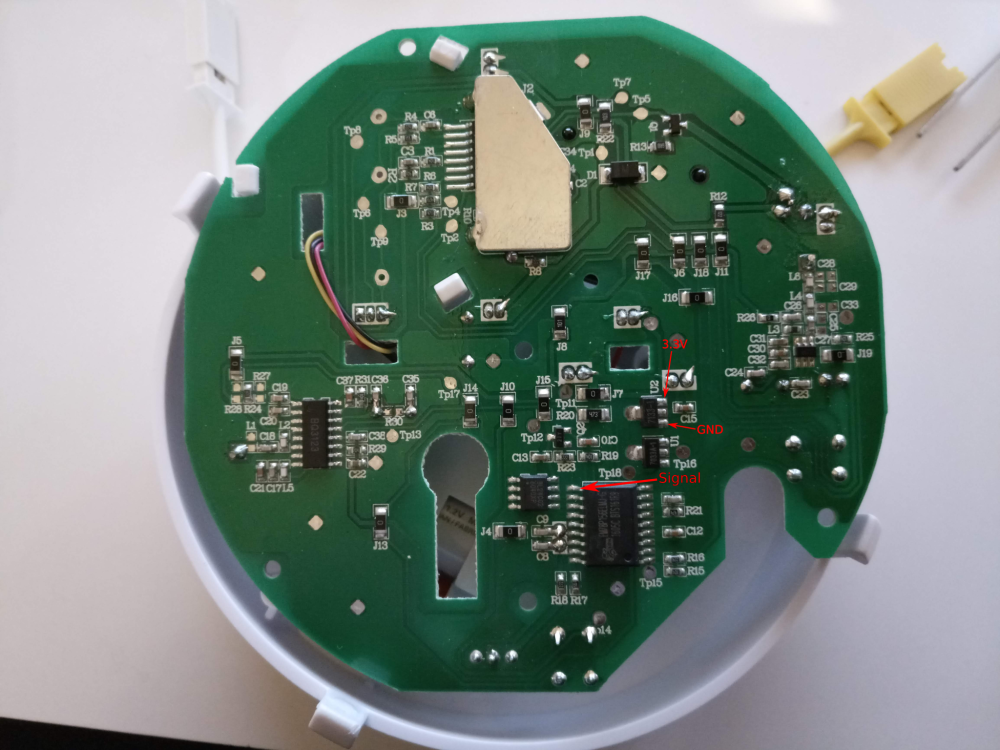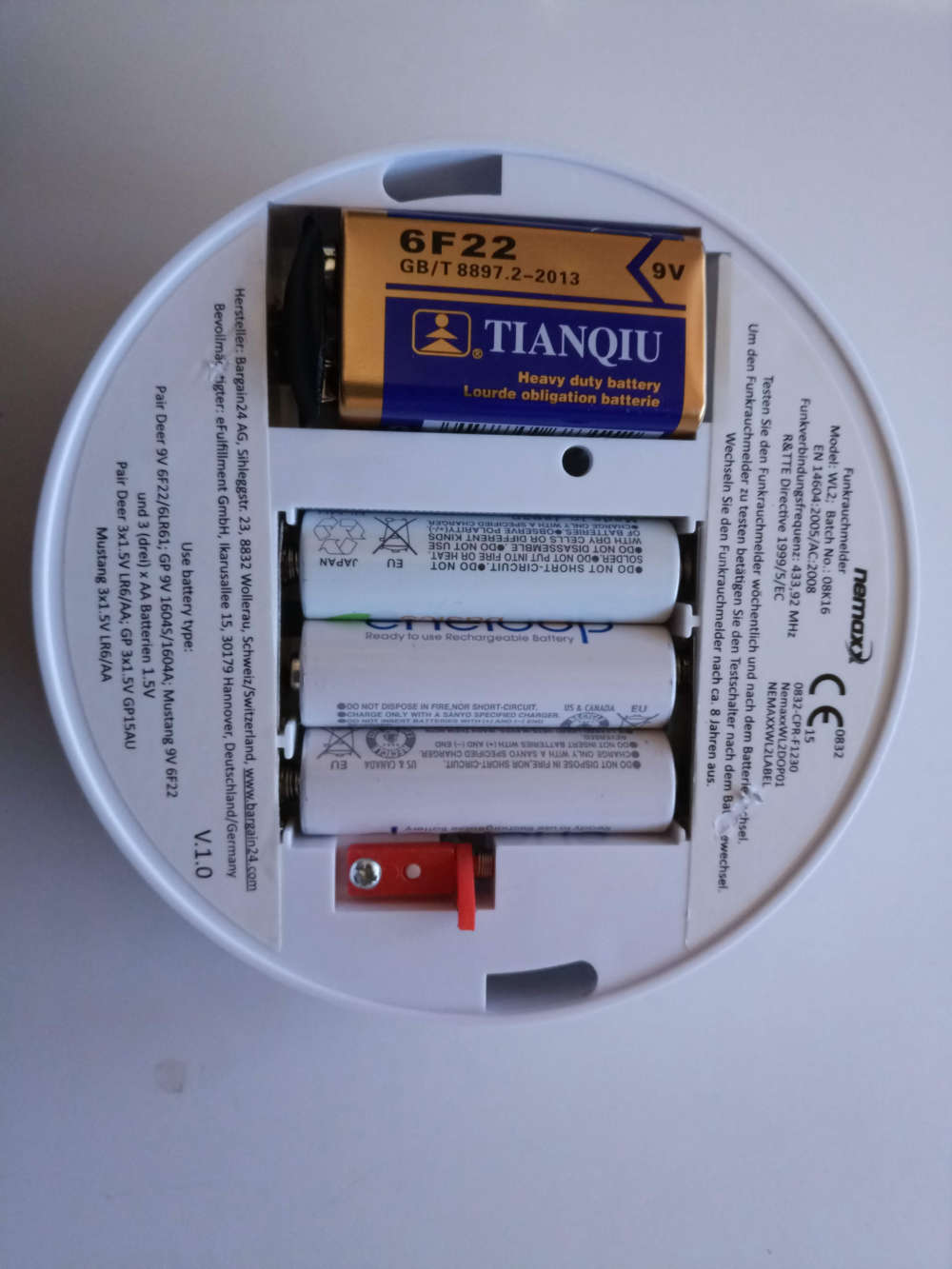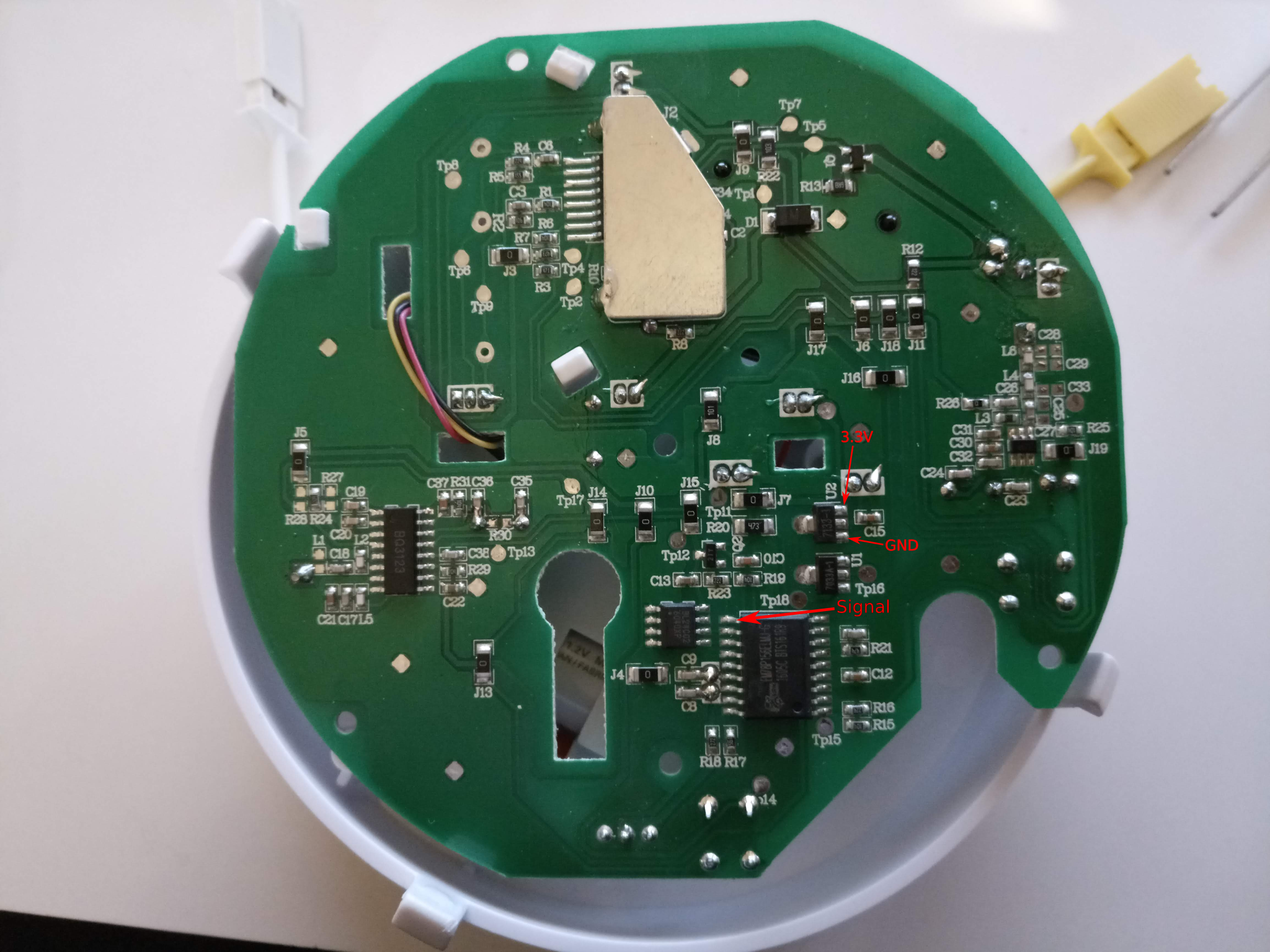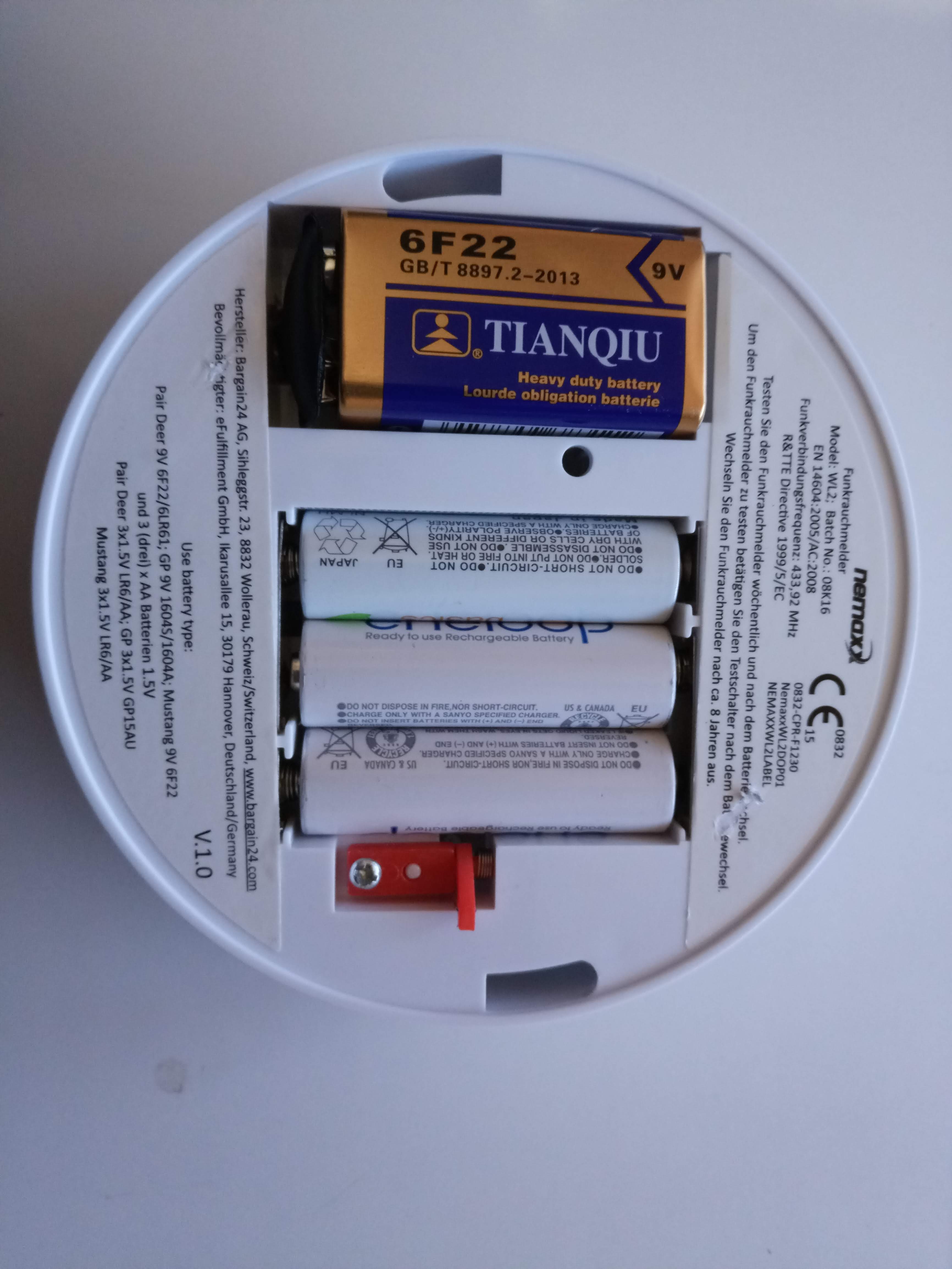Nemaxx smoke alarm WL2
-
Hi,
I just wanted to share my findings so far for this smoke detector I'm currently working on in case somebody is interested.
I bought 5 of them for ~40 EUR a year ago from amazon.de . They use a 9V battery + 3x 1.5V AA batteries. They are able to network over 433Mhz; if 1 alarm is triggered, they will all sound alarm. Amazon link is below:
https://www.amazon.de/Nemaxx-Funkrauchmelder-Rauchmelder-Brandmelder-koppelbar/dp/B00EZCMFPC/ref=sr_1_2?ie=UTF8&qid=1529688708&sr=8-2&keywords=nemaxx%2Bwl2&th=1I did a quick analysis of the PCB and here are the findings:
- 9V battery powers the smoke detector and piezzo alarm part.
- 3x 1.5V AA batteries powers a seperate MCU + flash memory through a 3.3V LDO regulator.
- The MCU seems responsible for user interface (buttons and leds) and communications. It integrates with the smoke detector part.
- MCU chip is em78p156el
- When the alarm is activated, pin P64 is pulled low for the duration of the alarm.
This makes it pretty easy to turn into a MySensors device. There is already a power source + LDO regulator with 3.3V output. Detecting the alarm activating / deactivating is very straightforward using the P64 pin.
I'm only hesitating if I should use the LDO regulator outputs directly or rather add my own.


-
Hi,
I just wanted to share my findings so far for this smoke detector I'm currently working on in case somebody is interested.
I bought 5 of them for ~40 EUR a year ago from amazon.de . They use a 9V battery + 3x 1.5V AA batteries. They are able to network over 433Mhz; if 1 alarm is triggered, they will all sound alarm. Amazon link is below:
https://www.amazon.de/Nemaxx-Funkrauchmelder-Rauchmelder-Brandmelder-koppelbar/dp/B00EZCMFPC/ref=sr_1_2?ie=UTF8&qid=1529688708&sr=8-2&keywords=nemaxx%2Bwl2&th=1I did a quick analysis of the PCB and here are the findings:
- 9V battery powers the smoke detector and piezzo alarm part.
- 3x 1.5V AA batteries powers a seperate MCU + flash memory through a 3.3V LDO regulator.
- The MCU seems responsible for user interface (buttons and leds) and communications. It integrates with the smoke detector part.
- MCU chip is em78p156el
- When the alarm is activated, pin P64 is pulled low for the duration of the alarm.
This makes it pretty easy to turn into a MySensors device. There is already a power source + LDO regulator with 3.3V output. Detecting the alarm activating / deactivating is very straightforward using the P64 pin.
I'm only hesitating if I should use the LDO regulator outputs directly or rather add my own.


@freynder nice work. I have these as well and the 3xaa runs out pretty fast for me so a good hack to give it a longer life would be interesting.
-
@sundberg84 Interestingly, the 9V battery ran out on me after a year. I'm now replacing it with an amazon basics battery. So far all 5 still have their 3xAA's running. How long before yours run out?
-
@sundberg84 Interestingly, the 9V battery ran out on me after a year. I'm now replacing it with an amazon basics battery. So far all 5 still have their 3xAA's running. How long before yours run out?
@freynder it is different. I don't know if they try to connect to each other and if some having issues with that it drains the battery.


